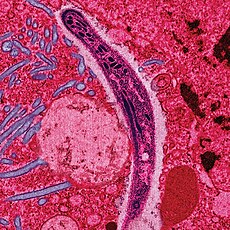The price of freedom is that someone free has to defend it. If it is paid for by the government, then the government gets to determine what freedom means, using funds coercively taken from individuals. If it is paid for by individuals, such as citizens and free militias, then it is they who will ultimately decide on the meaning of their own freedom. That's why Jean Laffite's contribution in the War of 1812 was so important to the definition of American liberty. This is also why the end of privateering meant the beginning of tyranny.
"If this is a free country, then shouldn't everything be free?" This question was placed into the mouth of Francie in the book A Tree Grows in Brooklyn. Her father answered: "If everything were free, it wouldn't be a free country." Then he proceeded to help her steal a better education than she was legally entitled to by pretending to live in a wealthier neighborhood than he could afford.
The American educational system has been a confusing mess for a very long time, Partly based on taxation of local property, and hence indirectly on the wealth of residents, and partly based on Federal funding, it serves no one and everyone, because no one and everyone pays for it.
The price of a free education is that the people who use it must pay for it. Unless it is paid for by students and their families, then the content of the education will be determined by someone else. The price of free healthcare is that the people who use it have to pay for it. If it is paid for by someone else, then someone else will determine what treatment will be given and what priorities will apply. If the government pays for medical care, then the government can determine who will live and who will die.
What about a free press? Who should pay for that? And in fact, who did pay for it early in the 19th century, after the War of 1812?
I have two mastheads at my disposal, thanks to Pam Keyes. One is the Weekly Aurora, a political paper espousing "Jeffersonian" views. There is no advertising, and the subscription is listed as three dollars per year.The issue I have is from October of 1815.
The second is the Southern Patriot and Commercial Advertiser. The subscription cost is ten dollars per year, but there is also advertising. The date of this issue is July 21, 1824. It does appear that the Southern Patriot came out more frequently than the Aurora, which might account for the great difference in the subscription price.
 |
| Advertisements in the Southern Patriot |
Another ad, quite different in tenor and content that particularly caught my eye ran like this: "Mrs. Eliza Schroder hereby gives public notice, that it is her intention to become a freedealer in 30 days after this date, agreeably to the act of the legislature. m4 July 12."
I am not sure what being a freedealer means, but I did look up freed slaves in South Carolina, and I found out that after 1820 it became possible for a slave in South Catolina to be freed only by an act of the legislature. Could this be an announcement by Mrs. Eliza Schroder that in thirty days time she was freeing herself? Did Mrs. Eliza Schroder save up the money to buy her own freedom? How many of us today could do the same? Why was an act of the legislature required?
Feel free to look over all the ads I have displayed above. Some are announcements for funerals, one is for a private lottery to support a school of fine arts, but we learn that the week before there was another lottery to support a different cause. It seems there was no state monopoly on lotteries and anyone could run one.
The Superintendent of Indian Affairs and the Governor of Florida Territory was buying up food to to "furnish to Florida emigrant Indians" and was soliciting contracts from suppliers.
The Treasury Department ran several ads, but so did booksellers, including one about a polar expedition in 1819 with information about the Aurora Borealis. There were meetings announced, houses for rent, and even a reward for a lost gold watch. What is remarkable is the wide variety of personal ads, side by side with those from commercial ventures and government entities.
While this period of American history was full of injustices and unfairness of many kinds, from slaves to be sold to native Americans who were clearly being dispossessed and interned, what is remarkable about the advertisements in this paper is that there are no large ads by more important people or entities overshadowing the smaller, more personal ads. It seemed as if each ad was given equal space and each person advertising had an equal say.
For there to be a free press, the press should be paid for by private people. This can happen in the form of subscriptions or advertising. We learn a lot about the press in the early nineteenth century by seeing how it was paid for and by reading both the editorials and the ads.


